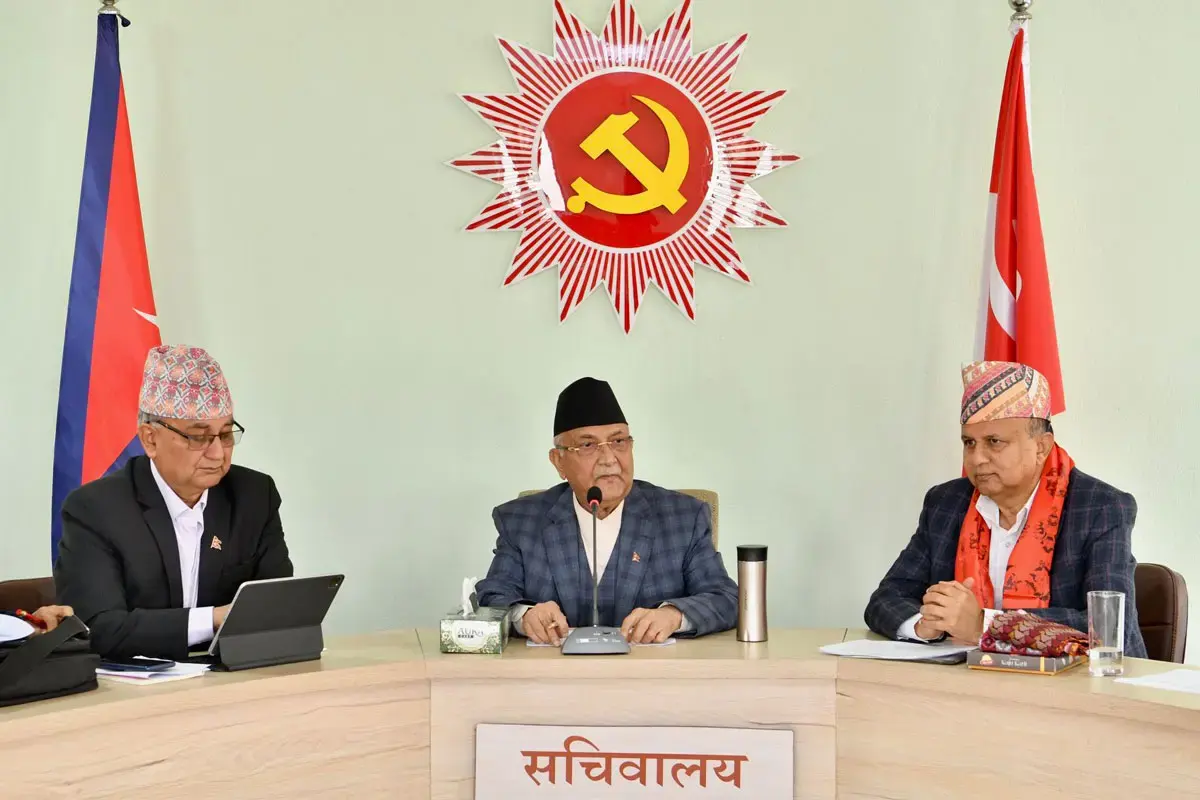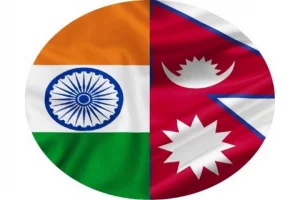KATHMANDU: Nepal’s ruling alliance dominated by left-wing political outfits collapsed on Monday as the CPN (UML), led by former Prime Minister KP Sharma Oli decided to quit the alliance and withdraw the support that it lent to the government headed by Maoist chief Pushpa Kamal Dahal aka Prachanda.
A meeting of the UML’s central secretariat chaired by party Chairman KP Sharma Oli took a decision to this effect this afternoon, according to the party’s vice president Bishnu Poudel.
“We have decided to withdraw the support to the government and recall our ministers from the cabinet after Prime Minister Prachanda backtracked on the understanding reached among the seven-party ruling alliance to support the UML candidate for the presidential elections,” Poudel, who is also the deputy prime minister and finance minister, told journalists after the meeting.
Even as UML withdrew its parliamentary support, Prime Minister Prachanda’s government is not in trouble since it has the support of the Nepali Congress, the largest party in parliament.
With the exit of the UML, a new eight-party ruling alliance under the leadership of the Maoist party is in the making. In the new ruling alliance, Nepali Congress will be a key partner in the federal government to provincial level, according to leaders.
OnlineKhabar: With the Nepali Congress preparing to join the government, the UML now will be the main opposition in the parliament. #Nepal #Politics #UML https://t.co/exFvWsiofa –
— Nepal News English (@Nepal_News_En) February 27, 2023
The new development comes three days after Prime Minister Prachanda, also the Maoist party chief, ditched UML’s Oli by extending support to the Nepali Congress candidate Ram Chandra Poudel in the presidential elections slated for March 9.
Prachanda insisted on electing the new president through all-party consensus while Oli reiterated the power-sharing deal between the UML and the Maoists at the time of government formation in December last year. According to Oli, Prachanda should have accepted to elect an UML nominee as the country’s president since UML backed Prachanda as the prime minister.
Even after holding a series of meetings for the past several weeks, Prachanda and Oli failed to narrow down the differences. After Prachanda’s volte-a-face, Oli has accused Prachanda of betraying the UML at the behest of external forces.
Adding insult to injury, Prime Minister Prachanda stopped the scheduled visit of Foreign Minister Bimala Rai Paudyal, also a leader of the UML, to Geneva to take part in the 52nd session of the United Nations Human Rights Council.
In a conversation with India Narrative, the foreign minister said that she was forced to cancel her trip to Geneva a few hours before her departure on Sunday evening.
“A few hours before my departure to Geneva, I was asked by the Prime Minister’s Office to cancel the visit upon the instruction of the Prime Minister,” Foreign Minister Paudyal told India Narrative on Monday.
Foreign Minister Paudyal is a CPN (UML) leader close to Chairman KP Sharma Oli. Her visit to Geneva was endorsed by the Cabinet chaired by Prime Minister Prachanda a week ago and the foreign ministry announced the visit at a press meet on Sunday afternoon accordingly.
Prime Minister Prachanda rose to power in late December with the supporting of seven parties comprising CPN-UML, CPN (Maoist Centre), Rastriya Swatantra Party (RSP), Rastriya Prajantra Party (RPP), Janata Samajbadi Party, Janamat Party and Nagarik Unmukti Party.
Among them, RSP and RPP have already quit the government over their differences with Prime Minister Prachanda.
Congress is to be Prachanda’s major ally
In this changed political context, the Congress party led by Sher Bahadur Deuba will be joining the government led by Prachanda.
According to Maoist party leaders, preliminary talks have begun among eight parties–CPN (Maoist Centre), the Nepali Congress, CPN (Unified Socialist) Janata Samajbadi Party, Janamat Party, Nagarik Unmukti Party, Loktantrik Samjbadi Party and Rastriya Janamorcha to form a new ruling alliance.
This eight-party new alliance will be an extension to the five-party ruling alliance which existed since mid-July 2021 after the ouster of the then PM Oli.
The five-party ruling alliance had come into existence in retaliation to Oli’s move of dissolving parliament twice in December 2020 and in May 20201.
(Santosh Ghimire is India Narrative’s Nepal correspondent based in Kathmandu)
Also Read: Prachanda ditches Oli, agrees to elect Congress candidate as Nepal’s next president




















